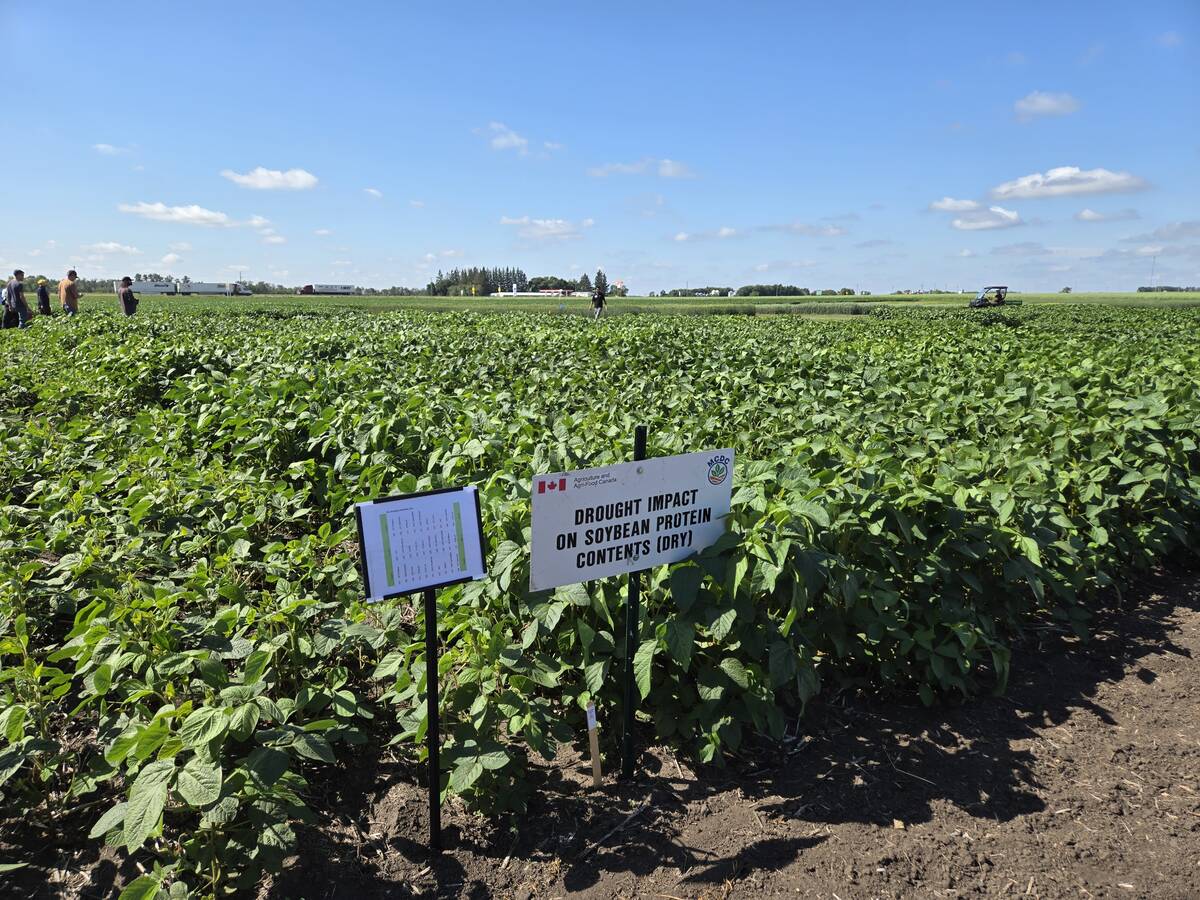Farm cash receipts fell 4.2 percent during the first nine months of the year, offering the first glimpse of the impact of low livestock and falling grain prices.
The revenue decline was the result of foreign protectionism, a soaring Canadian dollar value and lower grain prices because of strong supply.
At the same time, program payments plunged by almost 25 percent compared to the same period last year, according to a Nov. 23 report from Statistics Canada.
“The decrease in crop receipts was due to a drop in grain and oilseed prices as strong demand and production boosted sales,” the agency said.
Read Also

Carberry field day looks for agriculture solutions
Manitoba farmers explored research solutions for resilient crops, perpetual agronomic issues and new kinds of agricultural products at a field day at the Manitoba Crop Diversification Centre in Carberry on Aug. 6.
“Canada’s livestock sector has been affected by a strong Canadian dollar, concerns about the H1N1 virus and U.S. country-of-origin labelling, which has put downward pressure on U.S. demand for live animals.”
However, some sectors saw improved cash receipts during the first three quarters of the year.
Supply management sector receipts increased almost two percent, which helped moderate the decline in livestock sector income.
As well, because of a poor North American potato crop in autumn 2008, potato prices soared and potato farmer receipts were up 25 percent to the end of September.
However, Statistics Canada cautioned that the cash receipt preliminary numbers for 2009 do not necessarily indicate potential farm income trends for the year.
The first estimate of realized net farm income for the year will come in May 2010 when expenses and depreciation charges are calculated and deducted from cash receipts and program payments.
Meanwhile, the federal agency says national farm debt was a record $59 billion on Dec. 31, 2008, $1 billion higher than the preliminary estimate released in May.
Revised farm income numbers for 2008 also showed that the Saskatchewan farm economy had a better year than earlier estimates suggested. Realized net farm income in the province was $1.6 billion last year, almost double the 2007 total.
The next closest province was Quebec at $856 million.
Statistics Canada said strong prices in some sectors helped mask a 10.1 percent increase in production costs, the sharpest increase since 1981.














